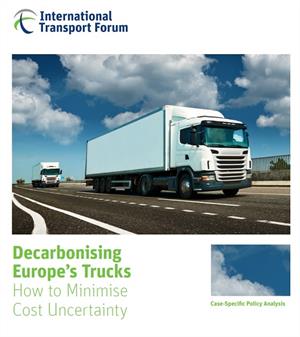The International Transport Forum, an intergovernmental organisation with 64 member countries, has recently published a report that looks at the feasibility of decarbonising heavy-duty trucks through the adoption of Battery Electric Vehicles (BEV), Fuel Cell Electric Vehicles (hydrogen), and Electric Road System Vehicles (ERSV).
 The report compares the financial viability of the three technologies compared with conventional diesel vehicles by examining their total cost of ownership.
The report compares the financial viability of the three technologies compared with conventional diesel vehicles by examining their total cost of ownership.
This analysis finds that zero-emission vehicles should generally become cost-competitive with diesel propelled trucks between 2030 and 2040 across all vehicle sizes. When exactly zero-emission vehicles will become cost-competitive with traditional trucks varies with vehicle size: the smallest vehicle categories could reach parity on total cost of ownership with diesel vehicles in 2022. Larger road freight vehicles are more likely to be cost-competitive around 2035.
The total cost of ownership of trucks varies significantly between the three powertrain technologies examined. BEVs and ERSVs - that use catenaries installed above roads to supply vehicles with electricity – have the potential to be the most cost competitive in Europe due to their energy efficiency and low operational costs, which offset upfront purchase costs. How battery electric trucks and ERSVs will compare in terms of cost is not yet clear, as their total cost of ownership is comparable in most scenarios.
BEVs will likely cost more to purchase and face greater operational constraints than vehicles using an electric road system, which could impede their rapid adoption. Conversely, it is unclear how quickly electric road systems might be deployed, and they would face significant upfront construction costs, which would need government support. A clearer understanding of the deployment timelines for the required infrastructure is needed to allow industry and policy makers to prioritise and understand how these technologies may complement each other. The report says that hydrogen powered vehicles are less competitive than the other two options.